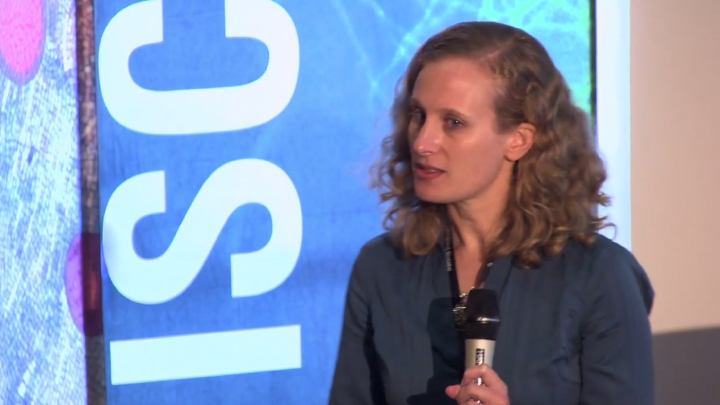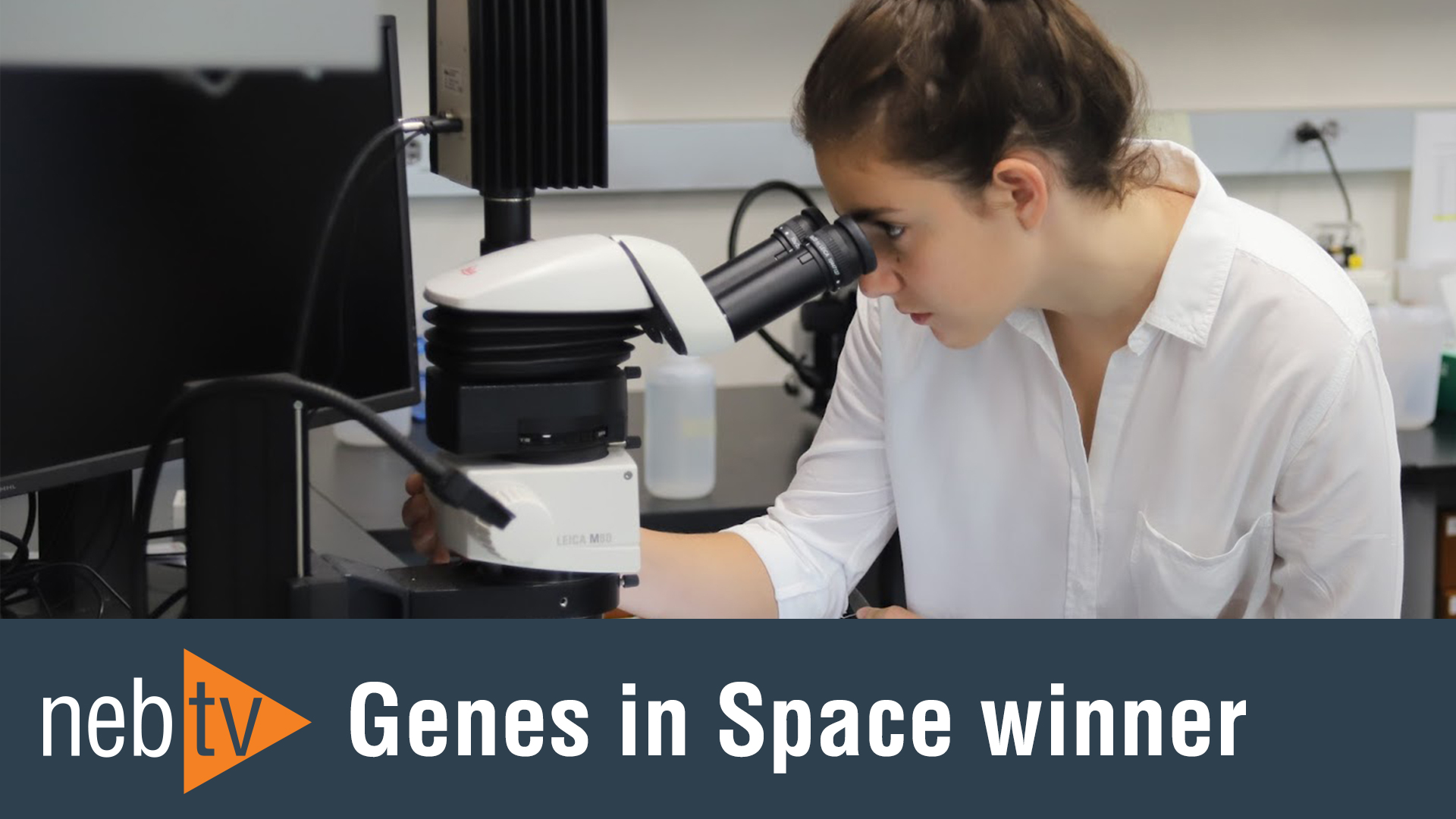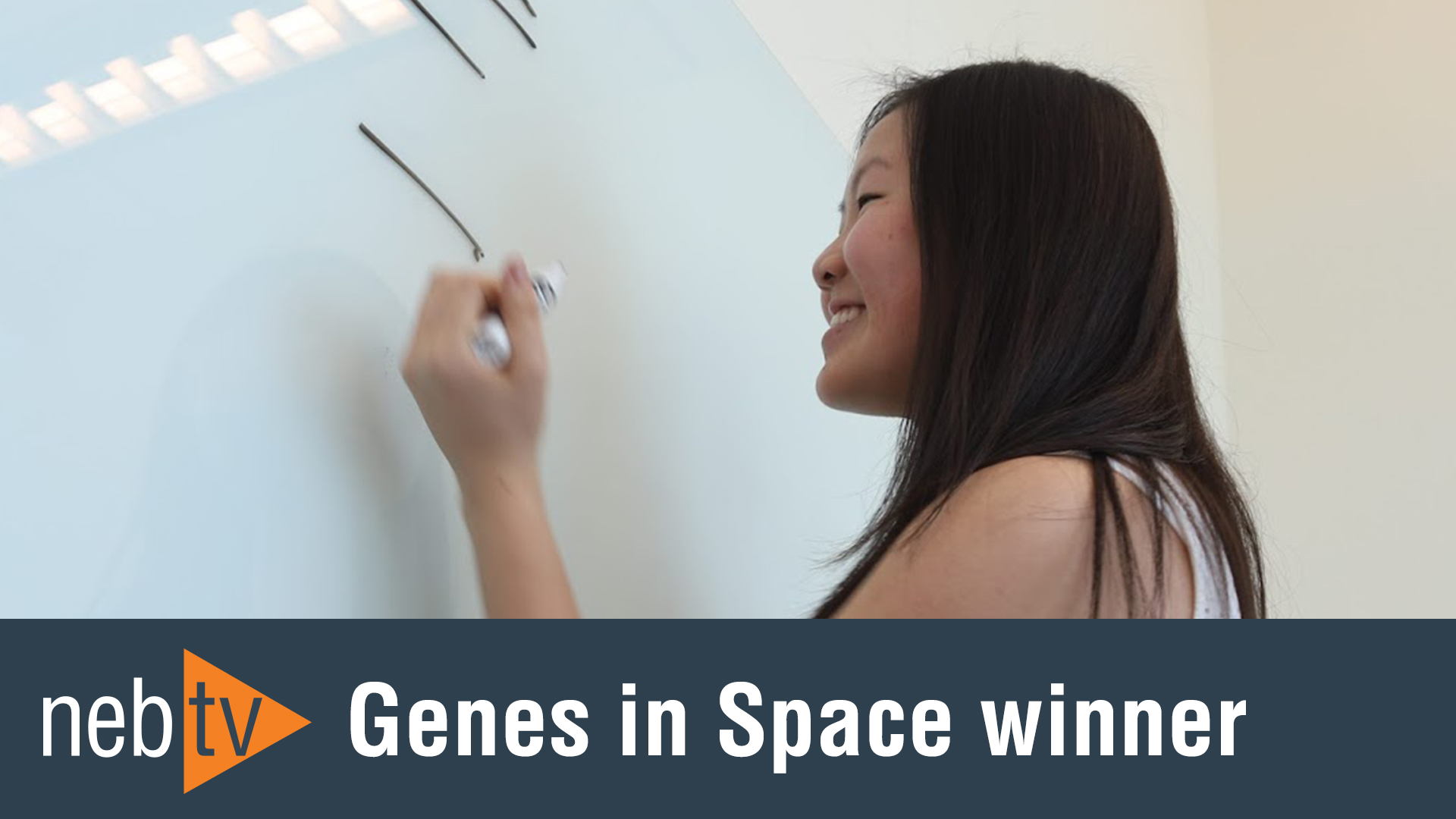NEB® TV Ep. 2 - STEM Education
Script
Welcome to NEB TV. Today I'm joined by staff scientist, Memo Berkmen. Hey, Memo.
Memo Berkmen,PhD:
Hi there.
Deana Martin:
And we will be talking about STEM education.
Memo Berkmen:
Thank you. First I'd like to talk to you about iGEM and how iGEM helps students pursue their dreams in science. Next, we'll hear from two of our Passion and Science winners and hear about their initiative to promote STEM education.
Deana Martin:
Great. Let's get started.
Memo Berkmen:
iGEM, which stands for international genetic engineering machines is an international competition where undergrads from all over the world come together to compete in a genetic competition, where they make standardized piece of DNA, recombine them in any way, put it into a molecular machine, such as bacteria to do their bidding. You can think of it as these LEGO® pieces here their gene of interest, either in yellow or in white, is flanked by standardized pieces of DNA in red. This allows them to take off any piece of DNA and put it into another piece of DNA. It's kind of like the bumps and the holes of a LEGO® where you can easily detach and attach anything you want. This allows them to run with their imagination, it's unhinged from the constraints of academia or industry. It's kind of like the Burning Man of molecular biology.
Deana Martin:
So we're here with Alia Qatarneh, who's from Harvard University. She's also one of our Passion in Science award winners, and is affiliated with Genes in Space. Welcome, Alia.
Alia Qatarneh:
Hi. How are you?
Deana Martin:
Could you tell us a little bit about the Genes in Space program?
Alia Qatarneh:
Sure. So, Genes in Space was created by miniPCR, Boeing, CASIS, and Math for America. And it's a national competition that asks students from grades seven through twelve to propose a novel DNA analysis experiment, that would be done aboard the International Space Station. We had over 330 proposals from over 700 students across the nation.
Deana Martin:
So what is next for the winner?
Alia Qatarneh:
The winner now is going to be working directly with Boeing to really flush out and finalize her experiment that will be done aboard the ISS sometime next year.
Deana Martin:
So how do you think programs like this help to promote STEM in high schools?
Alia Qatarneh:
So I think it forces the teachers to start doing some hands on stuff in the classroom. And I think it's a great outlet for the students who are generally interested in the hands on experience. So they can take what they learned in class and run with Genes in Space. Coming up with all these cool and novel ideas, from testing the logistics of PCR, will the kinetics of a polymerase work in microgravity, all the way to developing some sort of diagnostic for astronauts to maintain physical health up at the ISS.
Deana Martin:
Well, thank you so much for coming in today.
Alia Qatarneh:
Thank you.
Whitney Hagins:
My first experience with BioTeach was at Lexington high school when we received a BioTeach grant. And as a teacher who had been in the classroom for 34 years, I realized how powerful that experience and that assistance could be for us. We had a mentor come in and help us teach labs, and we were given financial support to update and improve our biotechnology equipment. There's really not one way to define mentoring, but I view it overall as a opportunity for me to get one to one with a teacher, and help them develop the skills and the knowledge to put them on the pathway of confidence, so they know they can do those labs with their students, and their students will get the best possible experience. It's somewhat ironic because one of my favorite movies is Pay It Forward, and I feel my opportunity here at BioTeach is that I can pay it forward. I can help teachers by working with other teachers, and helping them inspire students to see the wonderful world of biotechnology.
Deana Martin:
Thanks so much for watching today. NEB is very passionate about STEM education, and I hope that we were able to give you a glimpse of some of the programs that we're excited about. As always, if you have any suggestions for future episodes, please let us know.
Related Videos
-

GO GIRL: Promoting girls in STEM -

Genes in Space winner Liza Reizis -

Genes in Space winner Sophia Chen

